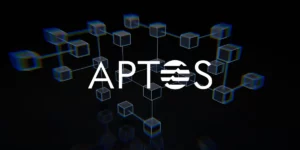
Key Highlights
- The importance of continuous crypto teaching in the industry
- The availability of crypto education online on platforms like Coinbase Learn and Binance Academy
- The benefits of earning cryptocurrency through platforms like Coinbase Earn and Coinmarketcap Earn
- Resources for beginner, intermediate, and advanced learners in crypto education
- The role of media outlets like Coindesk, Cointelegraph, and Coinidol in providing valuable industry news and information
Introduction
Crypto teaching has emerged because of the most exciting and dynamic industries in recent years. With the rise of digital currencies like Bitcoin and the development of blockchain technology, the world of finance and technology is undergoing a significant transformation. As the industry evolves, it is crucial for individuals to continuously learn blockchain and cryptocurrency, and stay updated with the latest trends and developments in the crypto teaching space.
In this blog, we will explore the strategies and crypto education insights that can help individuals navigate the world of cryptocurrency. Whether you are a beginner looking to understand the basics or an advanced trader seeking to refine your skills, there are plenty of resources and educational platforms available to support your learning journey. From online crypto teaching to informative media outlets, these resources can provide valuable knowledge and insights into the complex world of cryptocurrency.
- 1. Key Highlights
- 2. Introduction
- 3. Understanding the Basics of Bitcoin and Altcoins
- 4. Exploring Different Types of Cryptocurrency Courses
- 5. The Significance of Blockchain Tech in Cryptocurrency
- 6. Decentralized Finance (DeFi) and Its Impact on the Financial World
- 7. Cryptocurrency Trading Strategies for Success
- 8. The Future of Cryptocurrency: Trends and Predictions
- 9. Crypto Education: Choosing the Right Course for You
- 10. Crypto Teaching and Personalized Learning Experiences
- 11. What are the best resources for learning about cryptocurrency?
- 12. Conclusion
- 13. FAQ
Understanding the Basics of Bitcoin and Altcoins
When you start blockchain and cryptocurrency training make sure to understand the basics. Cryptocurrency is a digital or virtual form of currency that uses cryptography to secure financial transactions, control the creation of new units, and verify the transfer of assets. It operates on a technology called blockchain, which is a decentralized and distributed ledger that records all transactions across multiple computers. The most well-known cryptocurrency is Bitcoin, which was introduced by an anonymous person or group of people using the pseudonym Satoshi Nakamoto. Bitcoin and other cryptocurrencies can be stored in a digital wallet, which allows users to securely store and manage their digital assets. The internet plays a crucial role in facilitating cryptocurrency transactions, as it enables users to connect and interact with the decentralized network.

Share this Image on Your Site:
The Evolution of Digital Currency and Mining
Digital currencies have come a long way since their inception. The next evolution of digital currency is driven by the development of blockchain technology and the increasing adoption of cryptocurrencies. Blockchain technology has paved the way for secure and transparent transactions, eliminating the need for intermediaries and third parties. This has revolutionized the way financial transactions are conducted and has opened up new opportunities for individuals and businesses alike. Social media platforms have also played a significant role in the evolution of digital currency, with influencers and enthusiasts sharing information and insights about cryptocurrencies. The democratization of information has fueled the growth of the cryptocurrency market and has made it more accessible to a wider audience.
Key Concepts Every Beginner Should Know: Internet, Miner, Wallet
As a beginner in the world of cryptocurrency, and when we start teaching crypto, it is essential to understand some key concepts that form the foundation of this industry. These concepts include:
- Blockchain technology: The underlying technology behind cryptocurrencies, blockchain is a decentralized and transparent ledger that records all transactions across multiple computers.
- Cryptocurrencies: Digital or virtual currencies that use cryptography for secure transactions and control the creation of new units.
- Mining: The process of validating and verifying transactions on the blockchain network, which requires computational power and specialized hardware.
- Wallet: A digital wallet is a secure place to store and manage cryptocurrencies, similar to a physical wallet for traditional currencies.

Want to Build Wealth with Cryptocurrency?
Unlock the full potential of crypto investments. We teach you how to:
Manage Crypto Asset – trade, and store digital assets securely.
Minimize Risks – through insights on how to deal with volatility and security risks.
Build Wealth – with customized advice for your individual needs.
BOOK YOUR LIVE SEMINAR NOWExploring Different Types of Cryptocurrency Courses
For individuals looking to deepen their knowledge of cryptocurrency, there are various types of courses and crypto classes available. These crypto teaching courses cater to learners of different skill levels and provide a comprehensive understanding of the cryptocurrency industry. Whether you are a beginner or an advanced trader, there are courses that can help you enhance your skills and stay informed about the latest trends. From online courses offered by reputable institutions to specialized platforms like Binance Academy, there are plenty of options to choose from. These courses cover a wide range of topics, including blockchain technology, technical analysis, and risk management.

Share this Image on Your Site:
For Beginners: Getting Started with Crypto and Token
For beginners in the cryptocurrency space, getting started can seem daunting. However, there are several steps you can take to ease your entry into this exciting industry. The first thing we always talk about when we do crypto teaching, it is crucial to set up a digital wallet to securely store and manage your cryptocurrencies. There are various wallet options available, ranging from online wallets to hardware devices. Once you have a wallet, you can start exploring cryptocurrency exchanges, which are platforms that allow you to buy, sell, and trade cryptocurrencies. It is important to choose a reputable exchange that offers a user-friendly interface and robust security measures. Additionally, it can be helpful to start with small investments and gradually learn about blockchain and cryptocurrency as well as different trading strategies.
Intermediate Courses: Diving Deeper into Crypto Trading
Intermediate courses in the field of crypto teaching are cryptocurrency trading courses to delve deeper into the intricacies of the market. These courses often focus on technical analysis, which involves using historical price data and indicators to make trading decisions. By studying charts, patterns, and market trends, traders can gain insights into potential entry and exit points. Additionally, these courses explore the dynamics of cryptocurrency markets and how they are influenced by external factors, such as news and developments in the broader financial markets. Intermediate courses may also cover advanced trading strategies, risk management techniques, and the integration of cryptocurrency trading with traditional stock markets.
The Significance of Blockchain Tech in Cryptocurrency
Blockchain technology plays a crucial role in the world of cryptocurrency. It is the underlying technology that enables secure and transparent transactions without the need for intermediaries. Blockchain is a decentralized and distributed ledger that records all transactions across multiple computers, making it resistant to tampering and fraud. This technology has revolutionized the way financial transactions are conducted and has opened up new possibilities for decentralized applications (DApps). DApps are applications that operate on blockchain networks, offering various functionalities and services to users. The use of blockchain technology ensures transparency, immutability, and security in the cryptocurrency ecosystem.
Hence, if we start our crypto teaching, giving a basic understanding of the underlying technology is a must-know. For future developers, there are also online blockchain coding courses available.

Share this Image on Your Site:
How Blockchain Powers Cryptocurrency
Blockchain technology powers the operation of cryptocurrencies. It serves as the underlying infrastructure that enables secure and transparent transactions. The blockchain acts as a decentralized and distributed ledger that records all transactions across multiple computers, making it difficult for any single entity to control or manipulate the data. Cryptocurrencies are built on top of blockchain networks, using cryptographic principles to secure transactions and control the creation of new units. Mining is the process through which new cryptocurrency units are created and transactions are verified on the blockchain. Miners use computational power to solve complex mathematical problems, ensuring the integrity and security of the network.
Real-World Applications of Blockchain
Blockchain technology has the potential to transform various industries beyond finance. One of the key advantages of blockchain is its ability to eliminate the need for third parties in transactions, reducing costs and increasing efficiency. In the supply chain industry, blockchain can be used to track and authenticate the origin and movement of goods, ensuring transparency and trust. In healthcare, blockchain can securely store and share patient records, improving data security and interoperability. Blockchain also has applications in areas like voting systems, intellectual property protection, and identity management. As the technology continues to evolve, its real-world applications are expanding, offering new possibilities for businesses and individuals.
Decentralized Finance (DeFi) and Its Impact on the Financial World
When it comes to crypto teaching, Decentralized Finance, or DeFi, is another part we have to talk about. Because it’s a rapidly growing sector within the cryptocurrency industry. DeFi aims to disrupt traditional financial systems by leveraging blockchain technology and decentralized applications (DApps). These applications offer financial services such as lending, borrowing, and trading without the need for intermediaries like banks or brokers. DeFi platforms operate on blockchain networks, enabling users to interact with smart contracts that execute transactions automatically. This provides greater accessibility, transparency, and flexibility compared to traditional financial systems. DeFi has the potential to democratize access to financial services and empower individuals to take control of their financial lives.

Share this Image on Your Site:
Understanding DeFi: The Basics
Understanding the basics of DeFi is crucial for anyone interested in crypto teaching. DeFi refers to the use of blockchain technology and cryptocurrencies to recreate traditional financial systems in a decentralized manner. It aims to provide financial services to individuals who may not have access to traditional banking services. DeFi platforms offer a range of services, including decentralized lending, decentralized exchanges, and yield farming. These platforms operate using smart contracts, which are self-executing contracts with the terms of the agreement directly written into the code. By leveraging blockchain technology, DeFi aims to create a more inclusive and accessible financial system.
How DeFi is Changing Financial Transactions
DeFi is revolutionizing financial transactions by eliminating the need for intermediaries and reducing transaction costs. Traditional financial systems often involve multiple intermediaries, such as banks or payment processors, which can result in high fees and delays. DeFi platforms, on the other hand, operate on blockchain networks and leverage decentralized applications (DApps) to facilitate transactions. These DApps remove intermediaries, allowing users to interact directly with smart contracts. This not only reduces transaction costs but also increases the speed and efficiency of transactions. DeFi has the potential to transform the way financial transactions are conducted, making them more accessible and affordable for individuals worldwide.
Cryptocurrency Trading Strategies for Success
Successful crypto teaching in trading requires a combination of technical analysis and risk management strategies. Technical analysis involves studying historical price data and using indicators to identify patterns and trends in the market. This analysis can help traders make informed decisions about when to enter or exit positions. Risk management strategies are essential to protect capital and manage potential losses. Traders often use techniques such as setting stop-loss orders and diversifying their portfolios to mitigate risk. It is crucial for traders to continuously educate themselves on trading strategies and stay informed about the latest market trends to increase their chances of success.

Unlock the Secrets of Crypto Trading
Join our Live Online Course today!
Live, interactive online sessions – 1-on-1 sessions from a seasoned crypto trading expert.
Personalized coaching – from a certified crypto expert.
Learning Material – comprehensive learning from basics to advanced strategy.
Flexible Scheduling – to fit your busy life.
ENROLL IN THE BEST CRYPTO TRADING COURSEFundamental vs. Technical Analysis in Crypto Trading
In crypto teaching and especially in cryptocurrency trading, both fundamental and technical analysis play important roles in making informed trading decisions. Fundamental analysis involves evaluating the underlying factors that drive the value of a cryptocurrency, such as its technology, adoption, and market demand. Technical analysis, on the other hand, focuses on studying historical price data and using indicators to identify patterns and trends. Traders use technical analysis to gauge the sentiment of the market and make predictions about future price movements. While fundamental analysis provides insights into the long-term potential of a cryptocurrency, technical analysis is often used for short-term trading strategies. It is important for traders to understand and use both types of analysis to make well-rounded trading decisions.
Risk Management in Cryptocurrency Trading
Effective risk management is crucial when it comes to crypto teaching. In cryptocurrency trading, this is key to protecting capital and minimizing potential losses. Traders employ various techniques to manage risk, including setting stop-loss orders, diversifying their portfolio, and using proper position sizing. Stop-loss orders automatically trigger a sell order if the price of a cryptocurrency reaches a predetermined level, limiting potential losses. Diversification involves spreading investments across different cryptocurrencies to mitigate the impact of any single asset’s performance. Proper position sizing ensures that traders do not risk an excessive amount of their capital on a single trade. By implementing these risk management strategies, traders can protect their capital and increase their chances of long-term success.
The Future of Cryptocurrency: Trends and Predictions
The future of crypto teaching is filled with exciting possibilities and potential for growth. As the industry continues to evolve, several trends and predictions have emerged. One notable trend is the increasing involvement of institutional investors in the cryptocurrency market. Institutions are recognizing the value and potential of cryptocurrencies, leading to greater adoption and investment. Additionally, the development of regulated cryptocurrency exchanges and the integration of cryptocurrencies into traditional financial systems are expected to further drive the growth of the industry. It is important for individuals to stay informed about the latest trends and developments to take advantage of the opportunities presented by the future of cryptocurrency.

Share this Image on Your Site:
The Role of Cryptocurrencies in Future Financial Systems
Cryptocurrencies are expected to play a significant role in future financial systems. As digital currencies continue to gain acceptance and adoption, they have the potential to provide a more efficient and resilient alternative to traditional financial systems. Cryptocurrencies offer advantages such as faster and cheaper transactions, enhanced security, and increased financial inclusion. The decentralized nature of cryptocurrencies also makes them more resistant to censorship and government control. As the world becomes increasingly interconnected and digital, cryptocurrencies are likely to become an integral part of the global financial ecosystem, offering individuals and businesses a new way to transact and store value.
Emerging Technologies in the Crypto Space
The crypto teaching space is constantly evolving, with emerging technologies driving innovation and opening up new possibilities. Some of the emerging technologies in the crypto space include:
- Blockchain: The underlying technology behind cryptocurrencies, blockchain enables secure and transparent transactions without the need for intermediaries.
- Cryptocurrencies: Digital or virtual currencies that use cryptography for secure transactions and control the creation of new units.
- Mining: The process of validating and verifying transactions on the blockchain network, which requires computational power and specialized hardware.
| Emerging Technology | Description |
|---|---|
| Blockchain | A decentralized and transparent ledger that records all transactions across multiple computers |
| Cryptocurrencies | Digital or virtual currencies that use cryptography for secure transactions |
| Mining | The process of validating and verifying transactions on the blockchain network |
These emerging technologies are shaping the future of the cryptocurrency industry and have the potential to revolutionize various sectors, from finance and supply chain management to healthcare and governance.
Crypto Education: Choosing the Right Course for You
Choosing the right cryptocurrency course is crucial for individuals who want to deepen their knowledge and skills in this exciting industry. There are various factors to consider when selecting a course, including your current level of understanding, your learning goals, and your preferred learning style. Whether you are a beginner looking for a comprehensive introduction or an experienced trader seeking advanced strategies, there are courses available to cater to your specific needs. By carefully evaluating the course content, instructors, and reviews, you can find a cryptocurrency course that aligns with your educational goals.

Share this Image on Your Site:
What to Look for in a Crypto Course
When selecting a cryptocurrency course and getting involved in crypto teaching, it is important to look for certain key elements that contribute to a comprehensive understanding of the subject matter. Crypto teaching elements include:
- Course Content: The course should cover a wide range of topics, including blockchain technology, technical analysis, risk management, and industry trends.
- Instructors: The instructors should have extensive knowledge and experience in the cryptocurrency industry, providing valuable insights and guidance.
- Interactive Learning: The course should offer interactive learning experiences, such as quizzes, assignments, and discussions, to enhance the learning process.
- Reputation and Reviews: It is important to research the reputation of the course provider and read reviews from previous learners to ensure the course is of high quality and delivers on its promises.
Top Recommended Courses for Different Skill Levels
For crypto teaching beginners, it’s essential to start with courses that provide a solid foundation in cryptocurrency. One highly recommended course is “Bitcoin and Cryptocurrency Technologies” by Princeton University. This course covers the basics of blockchain technology and provides an overview of various cryptocurrencies. Another excellent option for beginners is the “Blockchain and Cryptocurrency Explained” course by the University of Michigan. This course offers a comprehensive understanding of blockchain technology, fintech, and finance.
Intermediate learners can benefit from courses such as “Cryptocurrency and Blockchain: An Introduction to Digital Currencies” by the University of Pennsylvania. This course delves deeper into the intricacies of digital currencies, including investment management and financial transformation. Additionally, the “Decentralized Finance (DeFi): The Future of Finance” specialization by Duke University provides insights into the evolving field of decentralized finance.
For advanced traders, the “Raising Capital: Credit Tech, Coin Offerings, and Crowdfunding” course by the University of Michigan offers valuable insights into the world of cryptocurrency investment. Furthermore, the “Financial Technology (Fintech) Innovations” specialization by the University of Michigan explores cutting-edge topics such as machine learning and cybersecurity in the fintech industry.
Crypto Teaching and Personalized Learning Experiences
Crypto teaching and personalized learning experiences provide individuals with tailored guidance and support in navigating the cryptocurrency market. These one-on-one sessions allow learners to receive personalized attention, ask specific questions, and develop customized strategies. By working closely with a knowledgeable crypto coach, individuals can gain a deeper understanding of the market dynamics, identify profitable investment opportunities, and refine their trading strategies. This personalized approach maximizes the learning potential and accelerates the growth of individuals in their cryptocurrency journey.

Share this Image on Your Site:
Benefits of One-on-One Crypto Teaching
One-on-one crypto teaching offers several benefits for learners. First and foremost, personalized learning allows individuals to focus on their specific needs and goals. A crypto coach can tailor the learning experience to address the learner’s strengths and weaknesses, ensuring maximum growth and understanding. Additionally, one-on-one crypto coaching provides an opportunity for direct interaction with an expert in the field. Learners can ask questions, seek clarification, and receive personalized feedback, which accelerates the learning process. Furthermore, a crypto coach can guide learners in developing personalized investment strategies, understanding market trends, and navigating the complexities of cryptocurrency trading. This personalized approach enhances the learner’s confidence and competence in the digital currency market.
How to Find a Qualified Person Teaching Crypto
Finding a qualified crypto teacher is crucial for a fruitful learning experience. When seeking a crypto coach, consider their qualifications and expertise in the field. Look for crypto teaching with a deep understanding of blockchain technology, extensive experience in cryptocurrency trading, and a track record of successful investments. Research their credentials, certifications, and educational background to ensure they have the necessary knowledge to guide you effectively. Additionally, read reviews and testimonials from previous learners to gauge the coach’s effectiveness and professionalism. It’s also beneficial to have an initial consultation with the coach to discuss your goals and expectations, ensuring a good fit between your learning needs and the coach’s expertise.
What are the best resources for learning about cryptocurrency?
For learning about cryptocurrency, the best resources include online courses on platforms like iMi Blockchain, crypto-related websites such as CoinDesk and CoinTelegraph, crypto podcasts like “Unchained,” and following crypto influencers on social media platforms for real-time insights and updates.
Conclusion
In the ever-evolving world of cryptocurrency, crypto education plays a pivotal role in understanding its nuances and potential. From grasping the basics to exploring advanced trading strategies, there is a wealth of knowledge waiting to be explored. Blockchain technology and decentralized finance are reshaping traditional financial landscapes, offering new opportunities and challenges. As you navigate this dynamic space, remember to choose courses that align with your skill level and goals. Whether you opt for personalized coaching or online courses, the key is to stay informed and adaptable in this fast-paced industry. If you’re eager to delve deeper, consider exploring our learning page for further insights.
Learn All About Cryptocurrency!
Crypto Training in Small Classes
Webinars about Cryptocurrencies
Crypto Courses at University Level
Get our Top Crypto Tips!
Get monthly tips on Crypto investments.
On top, you’ll get our free Blockchain beginners course. Learn how this technology will change our lives.
FAQ
What is the best way to start learning about cryptocurrency?
The best way to start learning about cryptocurrency is by enrolling in beginner-friendly courses. These courses provide a comprehensive overview of the subject, covering topics such as the basics of blockchain technology and different types of cryptocurrencies. Additionally, explore online resources such as explainer articles, podcasts, and internet forums to broaden your understanding of the crypto market.
Can I make a career in cryptocurrency and blockchain?
Yes, a career in cryptocurrency and blockchain is possible. The growing adoption of blockchain technology and the rising popularity of cryptocurrencies have created numerous job opportunities in this field. Individuals with a deep understanding of blockchain technology, crypto markets, and fintech can pursue careers as blockchain developers, crypto analysts, cryptocurrency traders, and more.
How much time does it take to learn cryptocurrency trading?
The time required to learn cryptocurrency trading varies depending on the individual’s dedication, prior knowledge, and practice. While some individuals grasp the basics quickly, others may require more time to understand the intricacies of crypto trading. It’s important to dedicate time to research, practice trading strategies, and stay updated with market trends to become proficient in cryptocurrency trading.
Are online cryptocurrency courses worth education crypto?
Yes, online cryptocurrency courses are worth it. These courses provide valuable knowledge and insights. They offer convenience, allowing learners to study at their own pace and access the material from anywhere. Online courses also cover a wide range of topics, from beginner-level concepts to advanced trading strategies, providing comprehensive cryptocurrency education.
Is educational content on Binance or Coinbase enough to learn about crypto?
Educational content provided by Binance or Coinbase can be a good starting point for learning about cryptocurrency, but it may not be sufficient on its own. It’s advisable to supplement it with resources from other sources to deepen your understanding and keep pace with the dynamic nature of the crypto landscape.


